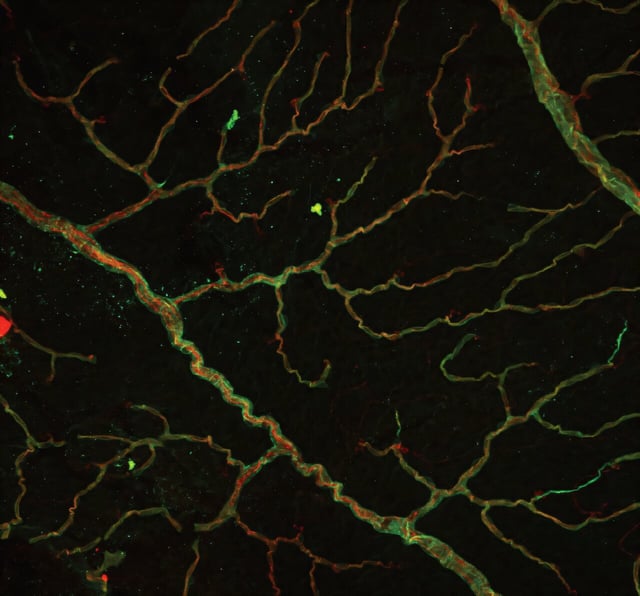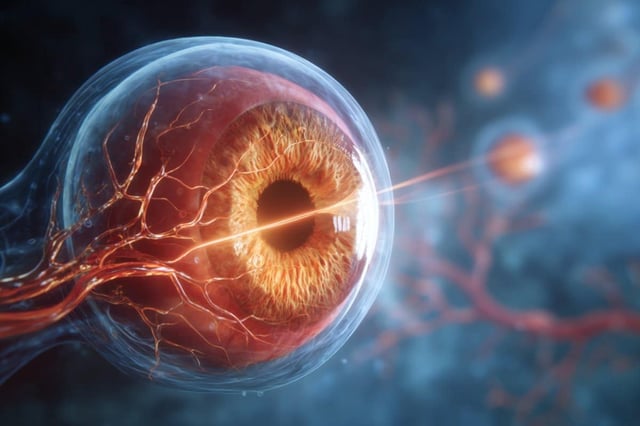Overview
- Published in Alzheimer’s & Dementia, the study reports twisted, narrowed retinal vessels and reduced branching in the mouse model as early as six months of age.
- Retinal abnormalities mirrored brain findings in the same mice, including fewer cortical vessels and reduced cerebral blood flow, alongside shared proteomic shifts in energy production, protein clearance, and vessel support.
- Age and sex influenced outcomes, with female mice showing greater vessel loss and poorer branching by 12 months.
- The model centers on the common MTHFR677C>T variant, reported in up to about 40% of people, underscoring potential population relevance while not establishing individual risk prediction.
- JAX has partnered with Northern Light Acadia Hospital in Maine to evaluate whether routine eye exams can detect similar retinal signs in humans and help refer patients for further dementia risk assessment years before symptoms; human validation is still pending.


